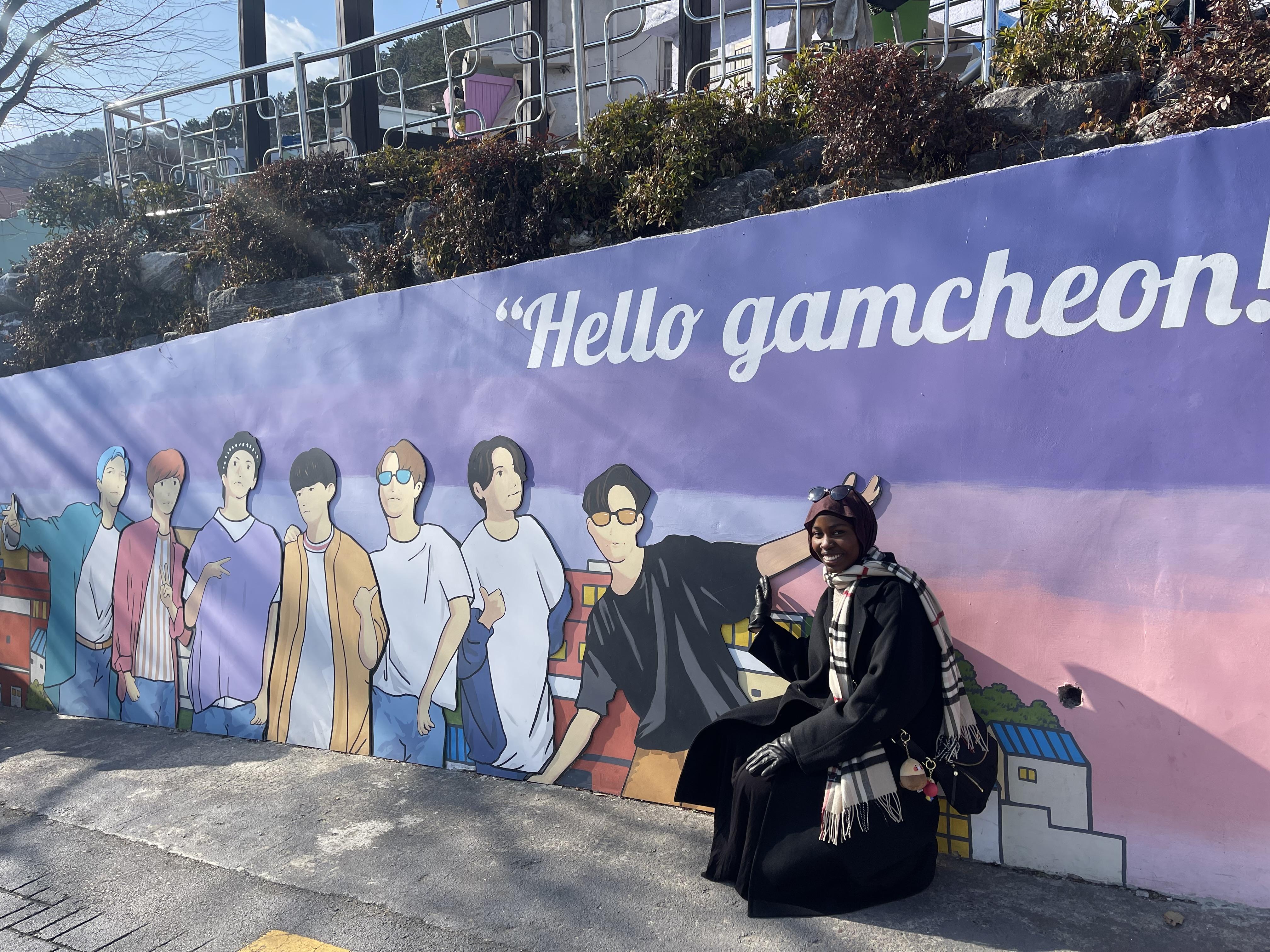
1. Can you share a little bit about yourself and the study abroad program you participated in?
I am a second-year student majoring in Biological Sciences: Physiology and Neurobiology, with a minor in Arabic language. Last winter, I participated in the 2024 Winter Abroad program at Yonsei University in Seoul, South Korea. I consider myself an avid language learner, starting with my love for French in high school and continuing with Arabic and self-teaching Korean. Languages have always been a significant part of my personal life, shaping various aspects of my experiences.
2. You formally study Arabic, and you self-taught yourself Korean. How did that impact your decision to study at Yonsei? What did that process look like?
My interest in Korean language and culture began about four years ago, sparked by exposure to Korean music and media. Last summer, I wondered if I could study abroad in Korea. Despite challenges—such as the lack of fellow students who had studied in Korea—I persisted, scouring forums, obtaining a passport (surprisingly, I had never flown before), and meticulously planning which schools to apply to. Despite the prestige and intimidation of institutions like Yonsei University and Seoul National University, akin to the Harvards and Yales of Korea, I applied nonetheless. In November, I received acceptance, and from there, I finalized my budget and itinerary.
3. What was a particularly memorable experience you had while abroad?
My itinerary was packed! I attended classes (of course), explored the vibrant Sinchon, Myeongdong, and Hongdae areas, which capture the heart of lively young adult scenes, delectable food options, and diverse shopping opportunities. I visited attractions like Lotte World, Namdaemun Market, Hanok Village, and even ventured to Busan, a province south of Seoul. Amidst these adventures, I encountered numerous firsts. However, one memory in particular stands out: at Lotte World, after exiting a ride with a friend, I was approached by some girls asking, "Do you know where the bathroom is?" and in my head I chuckled because I was in a foreign country I had no idea where anything was! But Despite being in a foreign country I always know where the bathroom is so I told them yes and to follow me. I confidently guided them, remarking in Korean, "Do you speak Korean?" Their gasps were followed by a delightful exchange in Korean. Although brief, this encounter left a lasting impact; their respectful gesture of addressing me as "unnie" (big sister), despite its cultural smallness, filled me with warmth.
4. What new skills or special knowledge did you gain or enhance that will help you in your academic and professional career?
As someone who had never traveled extensively before, the experience of taking off in an airplane filled me with an uncontrollable sense of giddiness. Being far from home underscored the world's vastness while highlighting our shared humanity. I believe that providing students with more opportunities to travel and study abroad is essential for fostering cultural competence and expanding their social circles. Despite my relatively short three-week stay in Korea, I have forged connections in China, Korea, Australia, and various places across the United States. Moreover, being abroad deepened my commitment to learning Korean, evident in the significant improvement of my language skills from day one to my departure. I was able to converse with taxi drivers, inquire with locals, and confidently navigate purchasing items and food.
5. If applicable, how did your identity impact your time abroad? And what advice would you give to students like you who are planning to go abroad?
As a Black Muslim woman, I was initially apprehensive about traveling, but my curiosity outweighed my fears, and I am grateful for the experience. Fortunately, I encountered no instances of bias during my time in Korea. In fact, simply by speaking a little Korean, I received many words of encouragement from locals. I believe that given the opportunity, every student should study abroad if possible. My key advice is to be proactive and conduct thorough research. You don't want any negative surprises, especially when you're a 15-hour flight away from home, as I was. Additionally, I recommend reaching out to individuals who have previously studied abroad, inquiring about their experiences and duration of stay, as well as consulting UMD education abroad advisors.
